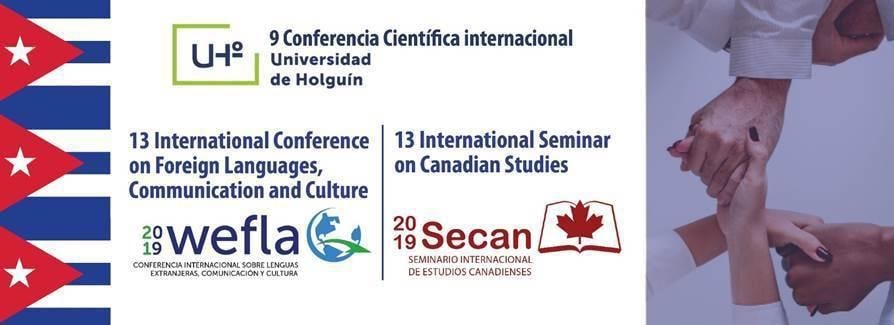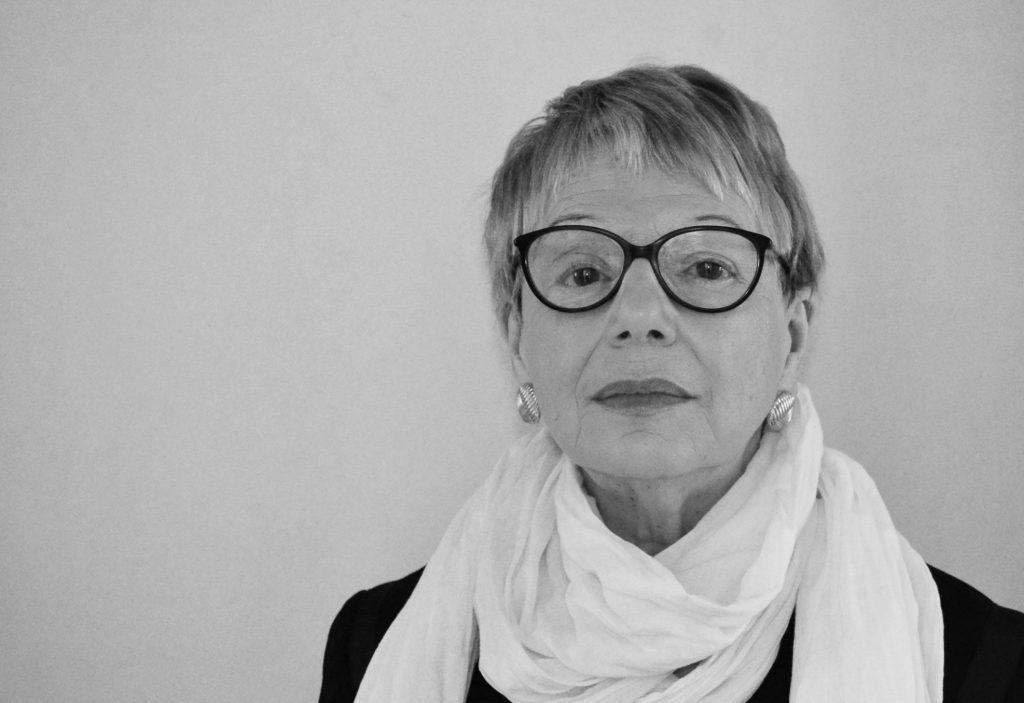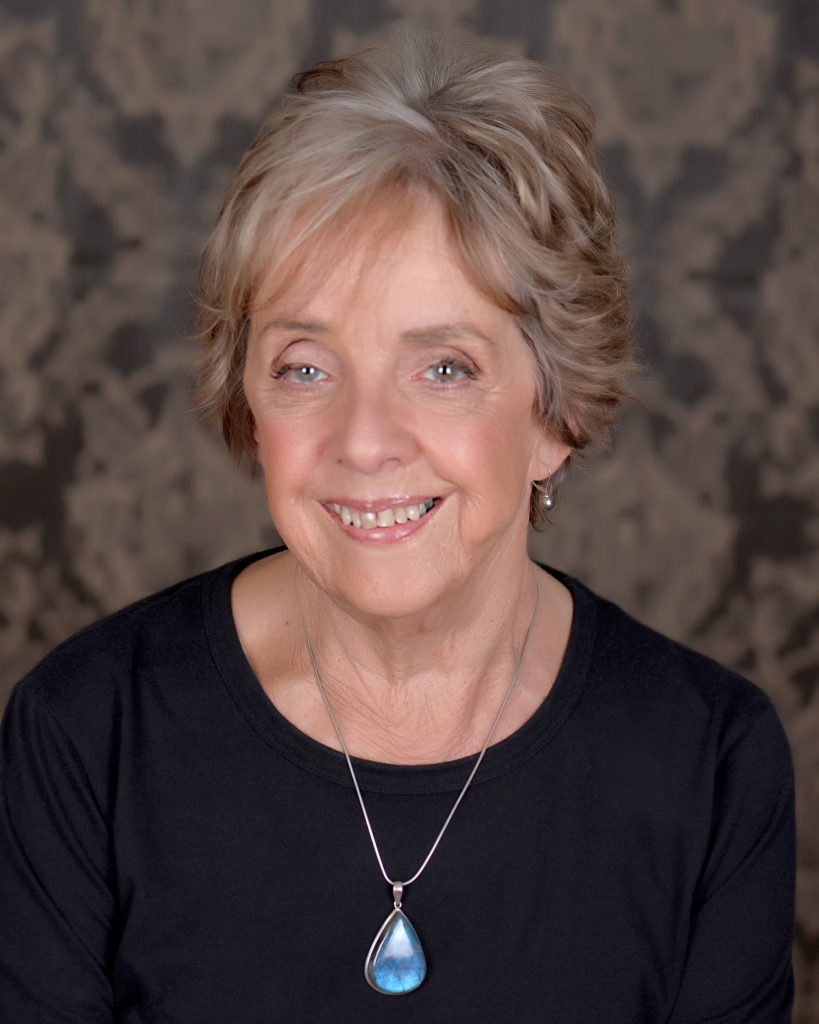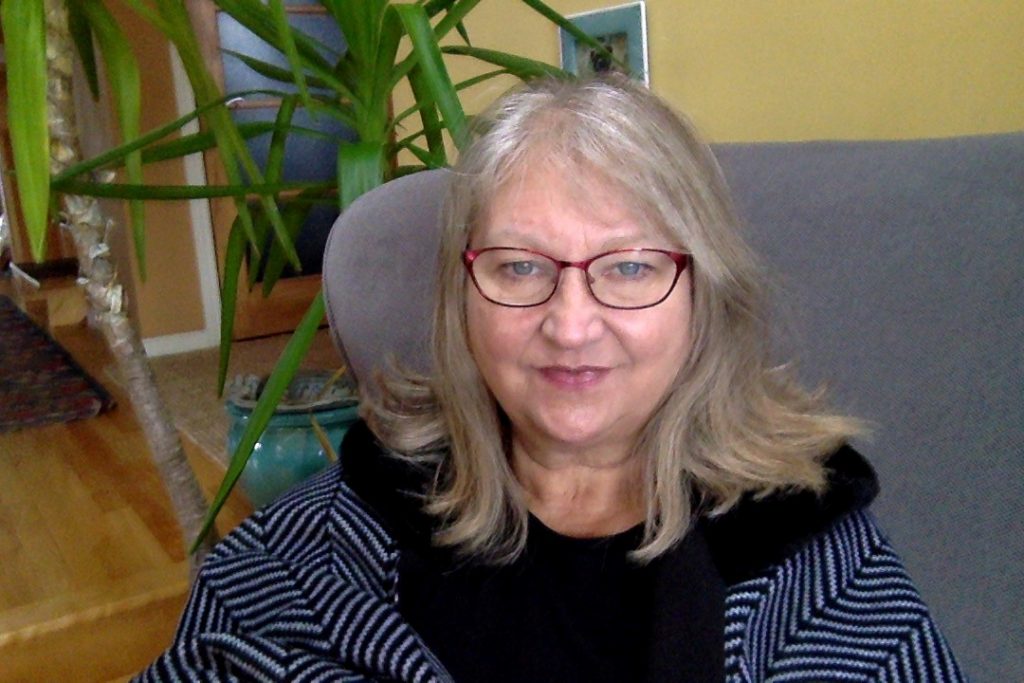
Keynote Paper: “Des écritures en partage: France Théoret et Patricia Smart, poésie, roman et essai.”
Séance partagée pendant laquelle la critique Patricia Smart parlera des grandes lignes de l’œuvre de France Théoret, poète et romancière féministe, dans une présentation illustrée par une lecture d’extraits de l’œuvre par France Théoret elle-même.
(A joint presentation with literary critic, Pat Smart, speaking about the major trends in the work of France Théoret, feminist poet and novelist. This presentation will be illustrated by Théoret’s reading from her own fictional works.)

France Théoret, poète, romancière et essayiste, est née à Montréal. En 2012, elle a reçu le prix Athanase-David pour l’ensemble de son œuvre, et en 2018, elle a reçu le prix Hélène-Pedneault, qui rend hommage à une femme qui contribue de manière exceptionnelle à l’avancement et a l’affirmation de la societé québécoise. Parmi ses romans sont inclus Une belle éducation, Montréal, Boréal, 2006; Huis clos entre jeunes filles, Montréal, Les Herbes rouges, 2000; La femme du stalinien, Montréal, La Pleine Lune, 2010; L’été sans erreur, poésie, Montréal, l’Hexagone, 2014. Elle a été écrivaine en résidence à l’Université du Québec à Montréal en 1995-1996. Elle a été nommée Ambassadrice de la Faculté des Lettres et sciences humaines de l’université de Sherbrooke en 2006. En 2002, elle a traversé la Russie de Saint-Pétersbourg à Sotchi pour écrire le roman Les Apparatchiks vont à la mer Noire.
Elle a donné de nombreuses conférences au Québec, au Canada. aux Etats-Unis, en Europe, à Cuba et en Nouvelle-Zélande. Des conférences nationales et internationales, des lectures publiques en poésie, des entrevues à la radio et dans les librairies ont accompagné ses années d’écriture.

Patricia Smart is a Distinguished Research Professor and Chancellor’s Professor Emerita at Carleton University. Her book Ecrire dans la maison du Père: l’émergence du féminin dans la tradition littéraire du Québec won the Governor General’s Award in 1988 and two of her later books —Les Femmes du Refus global (1998) and De Marie de l’Incarnation à Nelly Arcan: se dire, se faire par l’écriture intime (2014) have been finalists for the same prize. She is also the author of Hubert Aquin agent double (1973), of an English translation of André Laurendeau’s diary (1991) and of a critical edition of Claire Martin Dans un gant de fer (2005). She was elected to the Royal Society of Canada in 1991 and received the Order of Canada in 2004. Her recent work, De Marie de l’Incarnation à Nelly Arcan: se dire, se faire par l’écriture intime (Boréal, 2014) won the Gabrielle Roy Prize of the Association of Canadian and Quebec Literatures and the Prix Jean-Éthier-Blais of the Fondation Lionel Groulx as well as being short-listed for the Governor General’s Award and Ontario’s Trillium Award. She self-translated this book and it appeared in 2017 (McGill-Queen’s), titled Writing Herself into Being: Quebec Women’s Autobiographical Writings from Marie de l’Incarnation to Nelly Arcan.

Robert S. Schwartzwald. Professor. Département de littératures et de langues du monde (Literatures and Languages of the World) at the Université de Montréal, and Director of the interdisciplinary Graduate Programs in International Studies. PhD, Univ. Laval; MA, Univ. of Toronto; BA, Univ. of Manitoba. Before moving to U of Montreal in 2005 to become Director of the Department of English Studies, Schwartzwald was a professor at the University of Massachusetts Amherst, where he chaired the Department of French and Italian Studies and served as founding director of the Five College Center for Crossroads in the Study of the Americas (1998–2004). His essays have appeared in Comparative American Identities: Essays from the English Institute (Hortense J, Spillers, ed., Routledge 1991); Translation Effects : The Shaping of Modern Canadian Culture (eds. Kathy Mezei, Sherry Simon, and Luise von Flotow, eds., 2014), and La Contre-culture au Québec (Karim Larose and Frédéric Rondeau, eds., 2016) among other places. His books include a critical translation of The Brown Plague: Travels in Late Weimar and Early Nazi Germany by Daniel Guérin (Duke UP, 1994); Densités, intensités, tensions: l’urbanité montréalaise en question (with Simon Harel and Jonathan Cha, 2007); and, most recently, a volume on Jean-Marc Vallée’s (Dallas Buyers Club) 2005 award-winning film C.R.A.Z.Y. (Arsenal Pulp, 2015).) He is a recipient of the Governor General’s International Award for Canadian Studies.
Workshop: “Contested Memory Sites in Canada.” This discussion will focus on some Canadian instances of contested memory. Drawing upon material I use in my “Conflict and Historical Memory” seminar, I will introduce students to the various memorials to Louis Riel in Winnipeg, the contentious situation over how to remember Mordecai Richler in Montreal, a memorial park to a pioneer gay activist in Vancouver, and so on. We will examine several examples of visual material to understand the construction of cultural memory.
Paper: “Ian Angus’ A Border Within a Generation Later.” In 1997, Ian Angus published A Border Within. National Identity, Cultural Plurality, and Wilderness. Angus argued that an English-Canadian philosophy would have to acknowledge the predominant themes of English-Canadian identity – “political continuity articulated through the intervention of the federal state and a sense of break, or difference, elucidated through relationship to the land, nature, environment” – while overcoming the dilemma of the parochial/universal split that afflicts dependent social formations. Significantly, Angus excluded First Nations and Quebec from his reflection; to do otherwise, he claimed would be to participate in a bad old habit where “one group claims to monopolize the term “Canada” without discussion.” A generation later, the project of articulating an English-Canadian philosophy seems even more elusive. In part, this is because no such project could now convince without responding to the demand that Canada assume responsibility for the actuality, and not merely the historicity, of its colonial relations with Aboriginal peoples. At the same time, and partly as a result of this new demand, the urgency of discussing with Quebec seems to have receded. For Angus, it is the recognition of what he calls Canada’s specific “patterning of contents,” that stands to render it sufficiently significant to motivate and sustain philosophical inquiry” (…) so that one’s experience is not really marginal to understanding the human condition” (George Grant).

Nicole Côté, Université de Sherbrooke, has published many articles and book chapters on the literatures of Québec and Canada. She co-edited three books : Legacies of Jean-Luc Godard (Waterloo, Wilfrid Laurier University Press, 2014), Expressions culturelles de la francophonie (Québec, Nota Bene, 2008) et Varieties of Exile. New Essays on Mavis Gallant (New York, Peter Lang, 2002), as well as short story anthologies by Canadian authors that she also translated into French, Vers le rivage (L’instant même, 2001), Nouvelles du Canada anglais (L’instant même, 1998).
Workshop: “Traduire la poète et écrivaine de fiction Leanne B. Simpson” Cet atelier discutera de la traduction en français (et en espagnol, s’il reste du temps et que les étudiants le veulent) de deux pièces de son recueil ‘This Accident of Being Lost’ : le poème “To the oldest tree in the world” et la première page du récit “22.5 minutes”.
Paper: “Station Eleven : la mobilité comme outil de survie” Station 11, d’Emily St John-Mandel, est un roman postapocalyptique soft: pas de gore, pas de zombies, mais 99% de la population éradiquée par un virus de grippe. Le roman s’intéresse particulièrement à la transition entre l’avant et l’après, effectuant de nombreux allers-retours entre le début du 21e siècle et vingt ans plus tard pour montrer la résilience des survivants mais aussi leur nostalgie. Le roman suit quelques personnages lors de la transition temporelle, qui s’apparente à une transition spatiale en raison de la distinction paysagère presque absolue entre les deux époques. On suit particulièrement une troupe de musiciens et d’acteurs qui circulent dans la région des Grands Lacs pour jouer de la musique et des pièces de Shakespeare aux populations locales survivantes, parce que ‘la survie ne suffit pas’… Je considérerai l’organisation communale de l’orchestre ambulant auquel Kirsten s’est jointe quelques dix ans après, et ses conséquences pour l’amour et le sexe. Car si la communauté ambulante garde la jeune Kirsten en sécurité, la nécessité communale l’oblige aussi à chercher l’amour parmi les membres du groupe. Marco Caracciolo (2018) reprend inopinément une conclusion similaire à celle de Philip Wegner (2002) quant à la mutation que signifie ce genre : le récit qui, depuis les débuts du roman en Occident, s’était concentré sur des individus, semble dans le post-apocalyptique ne s’intéresser qu’à des groupes. J’ajouterais que le genre offre une cartographie des possibles suivant des catastrophes, et que ses auteures sont particulièrement conscientes tant de la vulnérabilité que de la résilience des femmes.

Roxanne Rimstead is Professor of Comparative Canadian Literature at Université de Sherbrooke, Québec, where she specializes in cultural studies, minority writing, feminist criticism, poverty narratives, Indigenous literature, life writing, and cultural memory. Arguing for politically engaged reading strategies to understand poverty, The Remnants of Nation: On Poverty Narratives by Women (U of T Press) won the Gabrielle Roy Prize for literary criticism in Canada in 2001. An early feminist analysis of Emily Carr’s Klee Wyck won the Don D. Walker Prize (USA, Canada). Recently Rimstead co-edited two critical anthologies on space and culture from below: La Lutte pour l’espace (with Domenic Beneventi and Simon Harel, Presses U Laval, 2017) and Contested Spaces, Counter-narratives, and Culture from Below in Canada and Québec (with D. Beneventi, U of Toronto Press, 2019). She also edited Cultural Memory and Social Identity (Essays on Canadian Writing, 2003) andco-edited with Deena Rymhs Prison Writing/Writing Prison (Canadian Literature, 2011). In 2009, she created, with grad students, a book-length bilingual website on Culture from Below http://culture-from-below.recherche.usherbrooke.ca/. Foreign expert in Shandong, People’s Republic of China in the 80s, Visiting Professor in Dijon, France in 2010, Rimstead was also a professor at the McGill Institute for the Study of Canada in Montreal between 1995-98. She has been an honorary professor at Universidad d’Holguin in Cuba since 2017, and received a Distinguished Alumni Award from U de Montréal in 2004. She has served on the editorial boards of Canadian Literature, Tulsa Studies in Women’s Literature (USA), and Race, Gender and Class (SUNO,USA), and as President of the Association of Canadian and Québec Literatures.
Workshop: “Poetry of the People in Canada: Reading Resistance across Time and Space.” This workshop studies poetic strategies of witnessing and resistance among “the people” from canonized works on economic hardship in Canada’s early colonies, to anonymous voices by workers during the Great Depression, to contemporary voices about culture from below in a multicultural and transnational society. Different constructions of “the people” emerge in each poem in order to imagine collective resistance and community. We will consider poetry in a broad sense, ranging from the lyrics of folk songs to spoken and written poems by Indigenous subjects, women, and migrant, and regional subjects.We will study how speakers position themselves among “the people,” “the folk,” or simply as an unnamed “we” in order to witness and protest collectively. Speaking for the people or as one among the people, these poems often use anger, lament, and hope to create an affective resistance against social exclusion, one that echoes across time and space.
Paper: “An Unimaginable Community: The Threat of Representing Symbolic Unity Among the Poor in the Americas.” This paper considers the threat of symbolic unity among the poor in the Americas, given a persistent rhetoric of divisiveness between the North and the South in the Americas, one of the most recent being the political discourse around the border Wall and the caravan of migrants between South and Central American countries and the southern border of the United States. By considering key poems of witness, short stories, apilleras, film, song, and other instances of cultural representation across history that have called for unity among the poor and resistance in the Americas, I would like to consider the role of art and literature in witnessing poverty and solidarity across borders. The literary scholars we are training in North America are well versed in forms of communities based on diasporas and alterity, including ethnicity, race, language, gender, region, and, more recently, indigeneity and sexual orientation, but much less able to make sense of community based on unequal access to wealth, status, and capital. There is a fearful silence about economic inequality in how academics in the humanities imagine communities within the Americas and the community of the Americas itself. Recent terms such as “wasted lives,” “bare lives,” “the abject,” “the voiceless,” and “slow violence,” all of which redefine dispossession and exclusion in interesting ways under globalization and econocide, may also have the unintended result of eclipsing unity and resistance among the poor and the working class. If and when the news media or theory fail to witness solidarity, perhaps art can help us find our way back to recognize resistance among the poor in the Americas. It is perhaps the role of art to call to mind this unimaginable community.

Eva Laurent de Valors is a first year M.A. student in Canadian Comparative Literature at Université de Sherbrooke, Canada. Born in France, she did her undergraduate studies at the Université de Lille Charles de Gaulle, where she studied English culture. She then specialised in literature and pursued her studies in Canada. Her field of interests are gender and sexuality studies, social studies, and class studies.
Workshop: “Capitalism and Indigenous Culture: The financial aspects of Cultural Appropriation.” In this workshop, we will focus on defining what cultural appropriation is, how it affects Indigenous culture nowadays, and to what extent cultural appropriation is a modern way for colonisers to increase occidental hegemony over Indigenous cultures to make profit. From the earliest use of the image of the “Indian Princess” to nowaday fashion creators getting inspired by traditional Indigenous clothing, non-Indigenous colonizers have taken every advantage of their power over Indigenous culture to appropriate Indigenous culture for profit. The trendy “new age” image given to Indigenous cultures increases people’s interests in animistic, holistic traditions, turning them into a product, a merchandise in which companies or individuals may invest. Criticism of such practices has been increasing in the last decades, in an attempt by Indigenous people to reclaim their cultures and traditions. As part of this phenomenon of cultural appropriation, people across the public sphere (politicians, writers, artists, etc.) have claimed to be from Indigenous descent to legitimise their use of Indigenous culture and stories. Many Indigenous people then called-out such behaviours as being a cunning way to legitimise the theft of stories. This workshop will discuss cultural appropriation, in particular in literature, art and visual representations. I will discuss the use and sexualization of the image of the Indian Princess as an early stage in the exploitation of Indigenous culture, with reference to Gail Valiskakis’s book on this subject, as well as more recent cases of appropriation such as the case of Joseph Boyden, an eminent Canadian writer, who has claimed part Indigenous descent, and Elizabeth Warren, an American politician whose similar claims to being part Indigenous have come under fire.
Paper: “Metaphysical Space and the Transhumanist Spectrum in André Alexis’ Fifteen Dogs” This conference paper will concentrate on spatial theory by David Harvey applied to the novel, Fifteen Dogs, by André Alexis. From David Harvey’s theory, space must be studied from three different points of view : absolute space, which is the space of Newton and Descartes; relative space, which is the study of how a given space inscribes itself in a whole system of spaces in relation to each-other; and relational space, which is the importance we give to a given space in relation to its history and what this space means to the people experiencing it. Following this theory, we, human beings have different ways to experience our own space depending on how we live space. But where do we put ourselves in comparison to the other species with whom we share space on earth? Fifteen Dogs, by André Alexis, is a novel in which 15 dogs are given human intelligence and consciousness. The way they appropriate space and live in Toronto and their interactions with humans around them witness the way humans establish their hegemony over a territory that is not inherently ours. To what extent can any other species pretend to have the right to their own space, given human hegemony over space? How does human technological expansion threaten the natural balance of our world, from a metaphysical point of view and through the spectrum of speciesist points of view?

Catherine Dubé is currently completing a Master’s degree in comparative Canadian literature at Université de Sherbrooke. She has a BA degree in teaching English as a second language and another in English and Intercultural Studies. Her fields of interest are feminism, gender and queer studies, engaged literature, literature for children, and cultural politics.
Paper: “Tactiques d’enfants dans leur quête de contrôle : Un espace hostile dans le roman Les enfants Beaudet de Isabel Vaillancourt” Les espaces à la fois public et privé dans le roman Les enfants Beaudet de Isabel Vaillancourt sont en fait des espaces hostiles pour les enfants de la famille Beaudet. Dans leur quête de contrôle sur ces espaces, les personnages d’enfants doivent développer des tactiques de survivance qui se révéleront être parfois autodestructrices. Les notions d’exclusion de l’espace de David Sibley et de pratiques d’espace de Michel de Certeau sont essentielles à une analyse adéquate de ces tactiques.

Guillaume Leclaire-Marceau is currently doing his Master’s degree in Canadian Comparative Literature at Université de Sherbrooke. He holds an undergraduate degree in Études françaises et québécoises from Bishop’s University and used to be a student-athlete. His fields of interests are Indigenous literature, poetry in French-Canadian literature and migrant literature within Quebec society.
Paper: “Les agents identitaires des familles à travers Soleil et Bonheur d’occasion” Cette présentation portera sur les identités familiales présentes dans Soleil de David Bouchet Bonheur d’occasion de Gabrielle Roy. Les deux familles de ces romans seront divisées en trois groupes distincts comportant les mères, les pères ainsi que les enfants. Nous pourrons y étudier comment certaines théories de Mary Douglas provenant de « The idea of a home: A kind of space » ainsi que Iris Marion Young avec « House and home: Feminist variations on a theme » peuvent s’appliquer aux femmes. Quant aux hommes, ces deux pères de famille souffrent de problèmes mentaux à différents degrés et nous pourrons voir comment ces troubles viennent miner leurs relations avec leurs familles et comment ceci affectera leurs identités à travers le processus expérimenté de la dépression chez l’homme. Ce processus sera présenté grâce à des articles théoriques sur la dépression tels que « Hard Won and Easily Lost: A Review and Synthesis of Theory and Research on Precarious Manhood » de Jennifer Bosson et Joseph A. Vandello. Pour conclure, nous parlerons de la situation des enfants où ceux-ci sont en quête d’identités, plus précisément dans la famille présentée chez Soleil, car ceux-ci sont nouvellement immigrants, au Québec.
Workshop by Catherine Dubé and Guillaume Leclaire-Marceau: “Parler contre le silence: La poésie autochtone de Natasha Kanapé Fontaine” Cet atelier portera sur la relation entre les nations autochtones et le Canada. Nous mettrons d’abord en lumières le contexte historique entourant les pensionnats autochtones. Un bref survol des lois du gouvernement canadien et des valeurs prônées par les communautés autochtones sera présenté aux participants et aux participantes. Cette introduction plutôt informative servira à mettre en contexte la situation actuelle des communautés autochtones établies dans la région du Québec au Canada afin de progresser vers une étude du recueil de poésie Bleuets et Abricots, de l’autrice autochtone Natasha Kanapé Fontaine, qui s’est mérité une place en finale au Grand Prix du livre de Montréal 2016. Dans ce recueil, l’autrice traite du métissage des cultures et des peuples. En utilisant des images riches de leur allusion à la terre, elle invite ses lecteurs et lectrices à dialoguer et à progresser dans le processus de réconciliation des peuples. Cette réconciliation sera un sujet que nous explorerons, puisqu’il s’agit d’un sujet d’actualité dans la politique canadienne. Nous échangerons donc sur les diverses tactiques utilisées par les différents peuples, soit les dialogues qui ont eu lieu jusqu’à aujourd’hui et les avenues explorées afin de rebâtir la relation entre peuples. autochtones et peuples colonisateurs, le tout, en lien avec l’ouvrage de Natasha Kanapé Fontaine.

Nancy Wright is currently a PhD candidate at Université de Sherbrooke in Comparative Canadian Literature. She wrote her MA thesis at Sherbrooke on African-Caribbean-Canadian writers and the representation of cultural memory in their work. She is currently Editor of the (national publication) Justice Report and Editorial Secretary of the (peer-reviewed) Canadian Journal of Criminology and Criminal Justice for the Canadian Criminal Justice Association / Association canadienne de justice pénale (CCJA-ACJP (Nov. 2011-Present).
She will be part of the Panel on Cuban Canadian Book collaborations.

Best flights ever 1
This article is in fact a pleasant one it helps new web viewers, whho
are wishing in favor of blogging.
Just wish to say your article is as astonishing. The clearness on your submit is just great and that i
could think you’re an expert in this subject. Well together with your permission let
me to grasp your feed to stay up to date with approaching post.
Thank you one million and please carry on the rewarding
work.